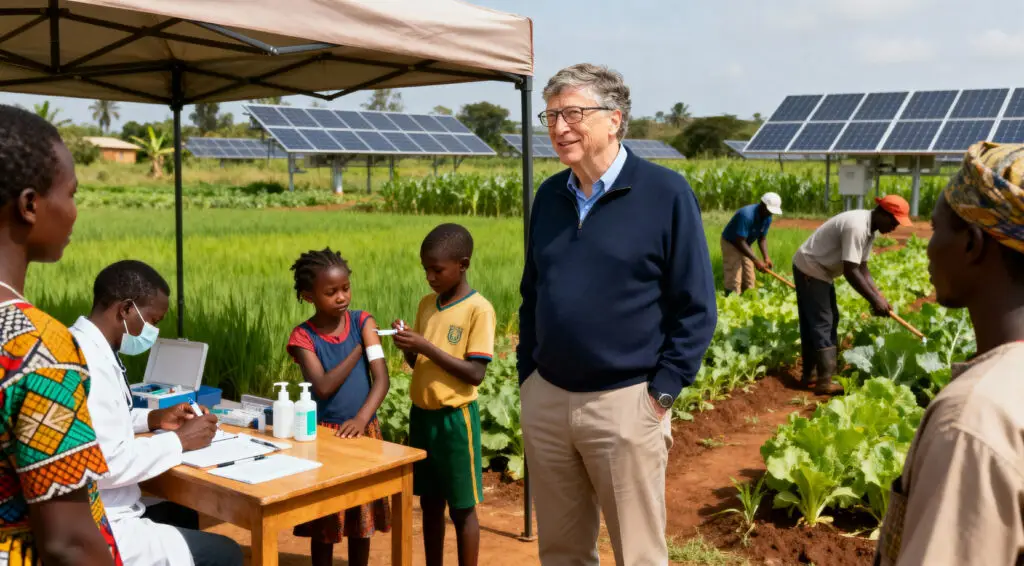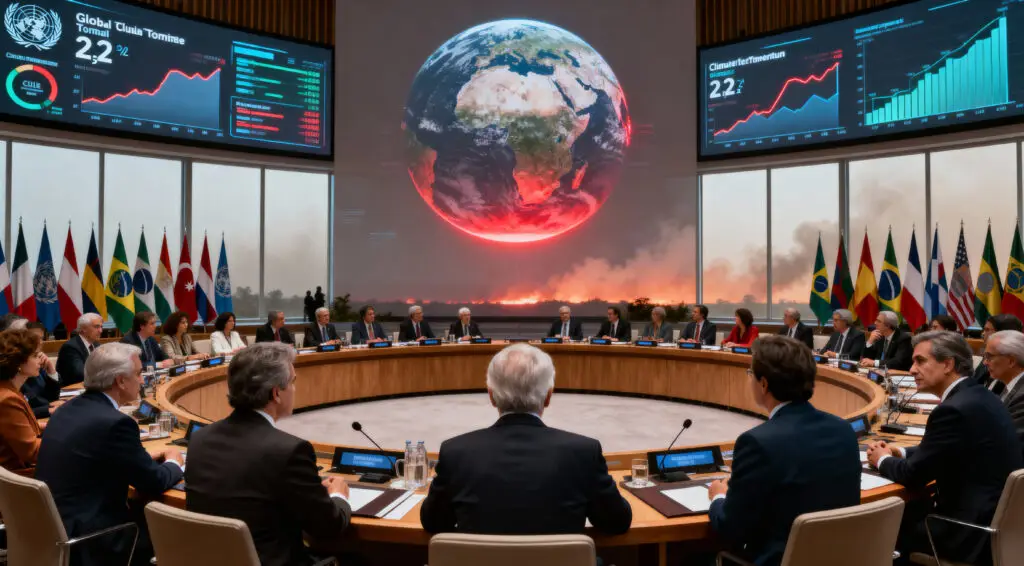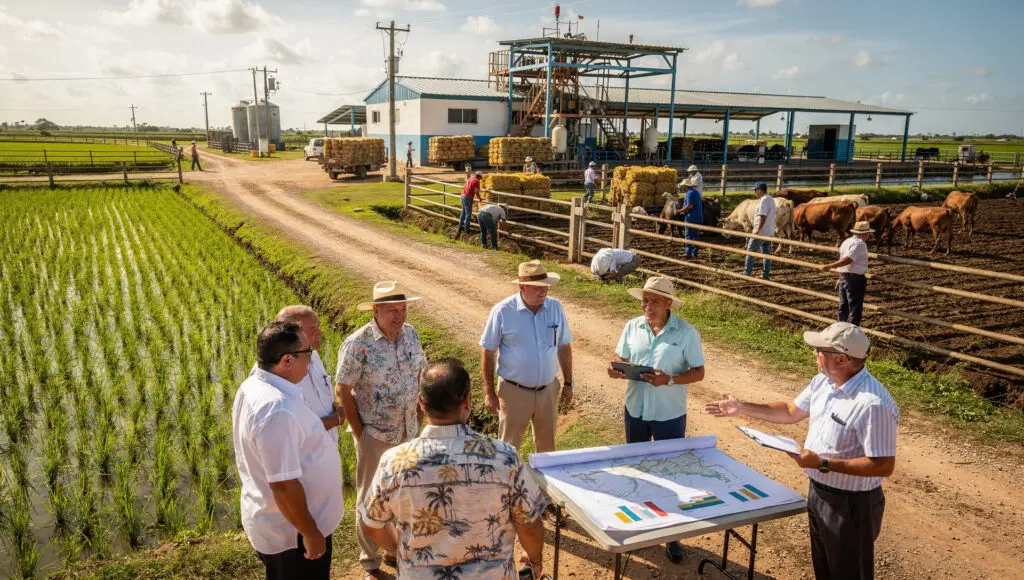Gates Proposes a Strategic Pivot in Climate Change Efforts
Bill Gates says that the world has to make a big “strategic pivot” in how it deals with climate change. He says that the main objective for people should change from only decreasing emissions to reducing poverty and stopping suffering. The Microsoft co-founder said in a message issued on Tuesday that the climate discussion has become too focused on keeping temperatures from rising instead of dealing with the genuine, pressing problems confronting the world’s poorest people.
He stressed that inequality, sickness, and human suffering are the real problems, especially in underdeveloped countries, even though climate change is a serious problem. Gates emphasized that new ideas, not fear, would eventually lead to the answers we need to make the world stronger and fairer.

Source: The New York TImes
The Billionaire’s Pragmatic Approach to a Global Crisis
Gates, who now runs the Bill & Melinda Gates Foundation, stated that the world has to make the most of the little money it has for climate change by focusing on the things that make life better in a warmer world. He said, “I’d choose malaria over lowering the temperature by 0.1 degree.”
For decades, his organization has worked to fight illnesses, including HIV/AIDS, TB, and malaria. It has also put money into education and new sustainable energy technologies. Gates’s company, Breakthrough Energy, which he started in 2015, continues to fund research into renewable technology that will help the economy expand in the long run instead of just cutting emissions in the near term.
Climate Memo Targets Upcoming UN Conference in Brazil
Gates wrote a 17-page letter called Tough Truths About Climate to try to change the way people talk about climate change during next month’s United Nations Climate Change Conference in Brazil. He told politicians to think about whether the billions spent on climate initiatives are really helping the people who need it most or just pushing the carbon agendas of rich countries.
He encouraged international leaders to reassess their objectives and put eliminating suffering ahead of symbolic carbon reduction goals. Gates added that climate monies should be used to help farmers stay strong, build medical facilities, and come up with new ways to make energy. These things would immediately enhance the lives of those who are vulnerable.
Recommended Article: Trump’s Early ASEAN Exit Spurs World Leaders to Advance Talks
Climate Experts Offer Divided Reactions to Gates’ View
Scientists and environmental professionals have different reactions to Gates’ comments. Kristie Ebi, a public health expert at the University of Washington, agreed with his focus on making the world a healthier place, but she disagreed with his idea that climate change and poverty can be separated. She said that ignoring the need to cut emissions might make long-term effects on people’s health worse.
Jeffrey Sachs of Columbia University, on the other hand, called the letter “vague and unhelpful.” He said that both fighting climate change and reducing poverty are possible at the same time, provided political and business hurdles, notably those from the fossil fuel sector, are removed.
Scientists Stress That Every Degree of Warming Still Matters
Climate specialists said again that even little rises in temperature may have terrible effects. Every tiny change in temperature causes catastrophic weather, loss of biodiversity, and harm to ecosystems that can’t be fixed. Michael Oppenheimer from Princeton University argued that only looking at human systems misses how much humans depend on the natural world to be alive.
Chris Field from Stanford University also stressed the necessity for two investment strategies: one that supports short-term humanitarian aims and one that protects the environment in the long run. He said that a sustainable future depends on combining the two goals instead of seeing them as separate concerns.
A Call to Balance Innovation, Growth, and Sustainability
Gates made it clear that his plan doesn’t ignore climate science; it only tries to make the best use of resources. He says that new technologies, notably in energy, agricultural production, and healthcare, can get better results sooner and more fairly than strict emission rules. Gates remarked, “A stable climate makes it easier to improve people’s lives.” He stressed that innovation is still the key to real development.
He also said that the private sector should work together, especially to pay for inexpensive clean technology that helps poor countries industrialize in a way that is good for the environment. Gates thinks this method may make things strong in the long run without stopping growth.
Changing the Climate Story to Focus on People
In the end, Gates wants to change the way people talk about climate change by focusing on how it affects people’s health instead of just temperature data. His perspective combines caring for people with practical economics, saying that global development, health, and climate resilience should all go forward at the same time.
Some people doubt the usefulness of putting emissions on the back burner, but Gates’ message strikes a chord with politicians who want to find a balance between protecting the environment and making progress in society. As the globe gets ready for the UN climate conference, his demand for a strategy shift might start a much-needed discussion about what success in the battle against climate change really means.























